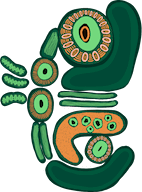
Are your sleeping habits impacting your oral health?
You could be forgiven for not investing too much energy thinking about your teeth once you’ve gone to bed. For many of us, the nightly ritual of tooth brushing and flossing ticks off a mental checklist of things to do before going to sleep. But even when you’re in the land of dreams, there’s a lot going on in your mouth – take a few moments to find out more.
Top 5 facts about sleep and teeth
- At night, saliva flow slows down and the protective effects of saliva are reduced. That’s one of the reasons why it’s so important to brush your teeth thoroughly before going to bed. Use a soft, small headed toothbrush and fluoride toothpaste and floss gently between each tooth. Don’t forget to brush your tongue as well, to reduce the number of decay causing bacteria.
- Be mindful if you’re a teeth grinder. If your teeth and/or your jaw feel tight and sore in the mornings, you experience tension headaches or your partner notices you are grinding, it’s important to book an appointment with your dentist. Excessive wear, broken and cracked teeth and tooth sensitivity are all common results from tooth grinding. A custom fitted splint acts like a cushion and helps to protect teeth.
- Sleep apnoea is a condition which happens when the throat becomes partially or completely blocked during sleep. This causes breathing to stop for anywhere between a few seconds to 1.5 minutes. Because sleep apnoea causes mouth breathing, a dry mouth results which then increases the risk of tooth decay. Gum inflammation, periodontal disease and a build up of plaque are also more common.
- Poor sleep also causes an increased risk of temporomandibular joint (TMJ) issues. Sleep apnoea and TMJ problems are experienced together. Symptoms of TMJ disorder include jaw pain, problems chewing, a clicking or grinding sound from the jaw or even a locked jaw.
- Sleep helps us all to regulate our moods, concentrate more and feel rested and restored. Sleep also serves a number of restorative functions in our body, as well as supporting our cardiac and circulatory health and reducing inflammation. Improved blood flow helps to support the transport of enamel and phosphorus to our teeth, boosting the protective qualities of these minerals.
Night time tips for better sleep and oral health
Take your time in the bathroom at night – don’t rush toothbrushing and set a timer if it helps. The goal is to brush for two minutes and allow a little time on every tooth and its surfaces. Clean between your teeth with floss and/or interdental brushes.
Speak with your dentist about the benefits of using a therapeutic mouthwash if you’re prone to decay. This can help to reduce the risk of decay and gingivitis.
Drink only water after brushing your teeth. If you eat, you’ll need to brush again to remove food particles before going to sleep.
If you suffer from reflux, be mindful your teeth could be affected by stomach acid. Lying flat after eating a meal can increase the likelihood of refluxing episodes. Your GP will be able to guide you in treatment.
Book an appointment today with your dentist to have your teeth checked and discuss your dental needs.
